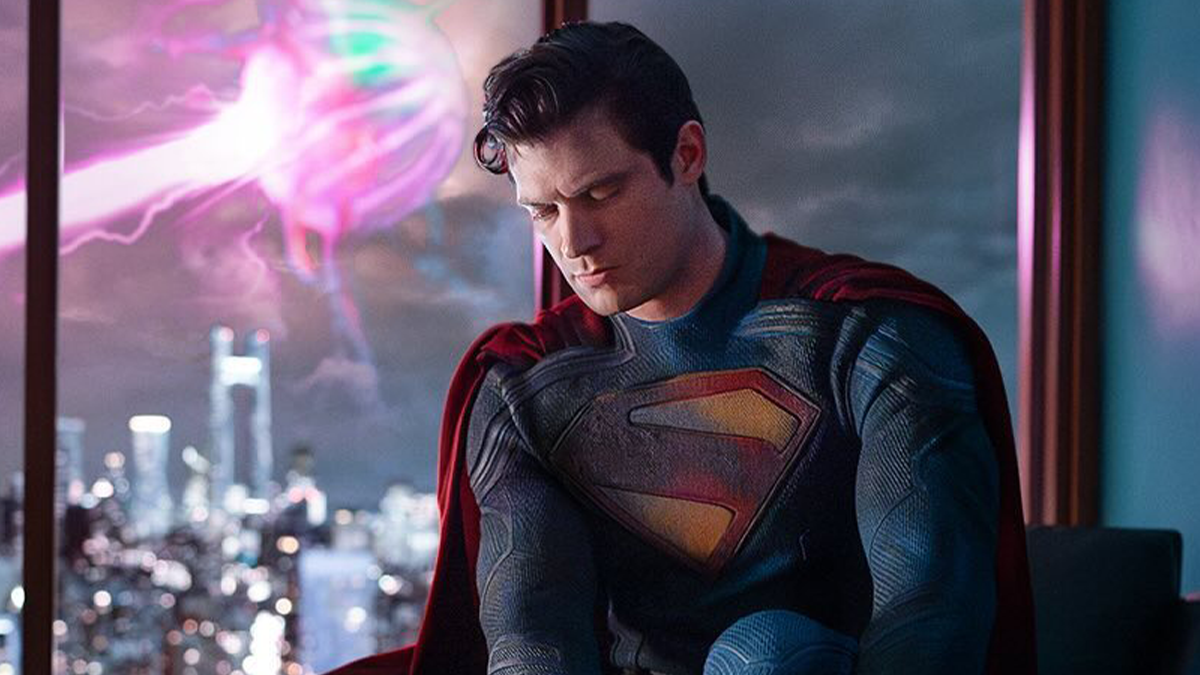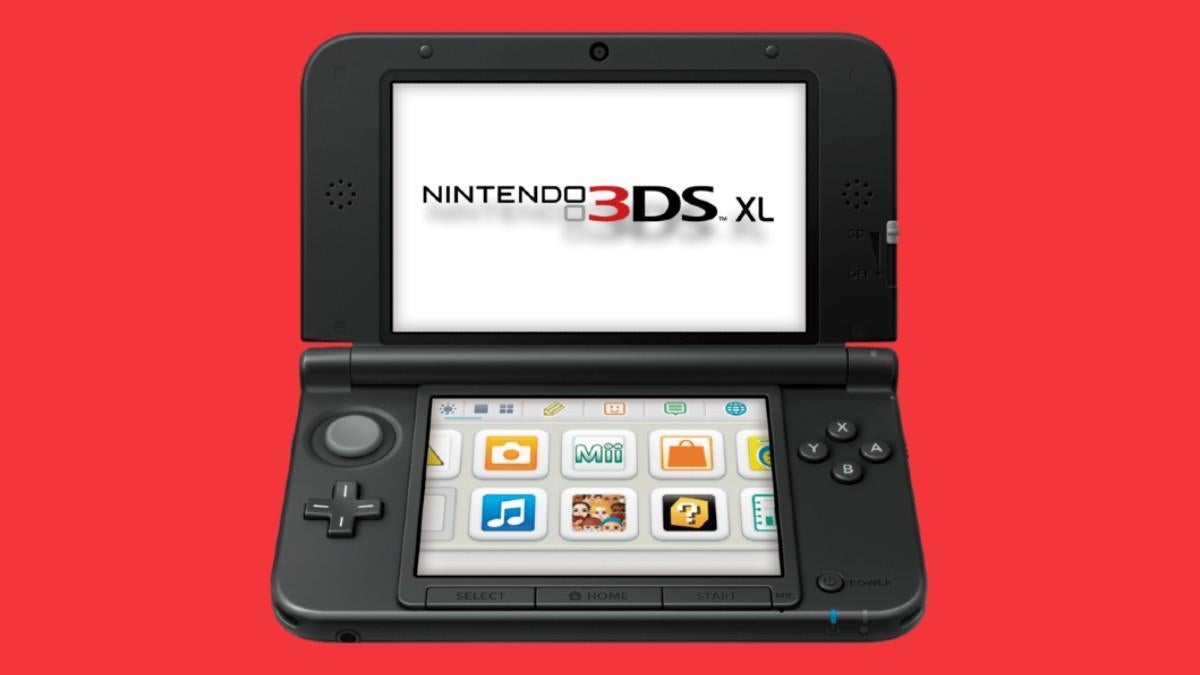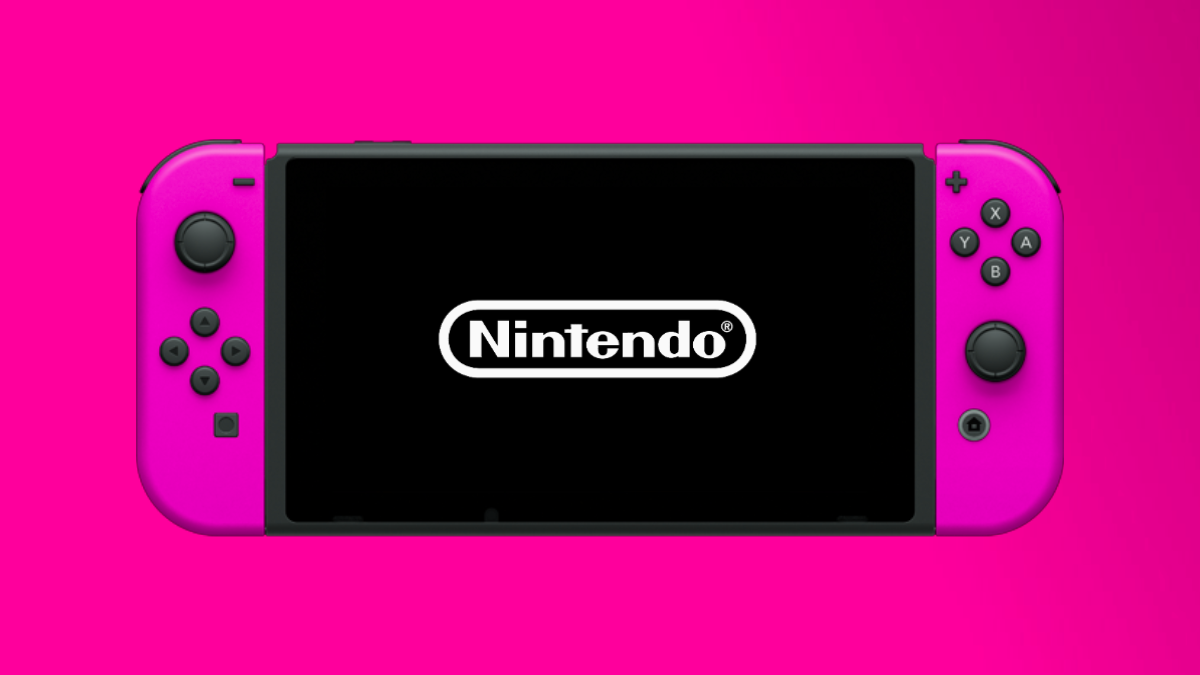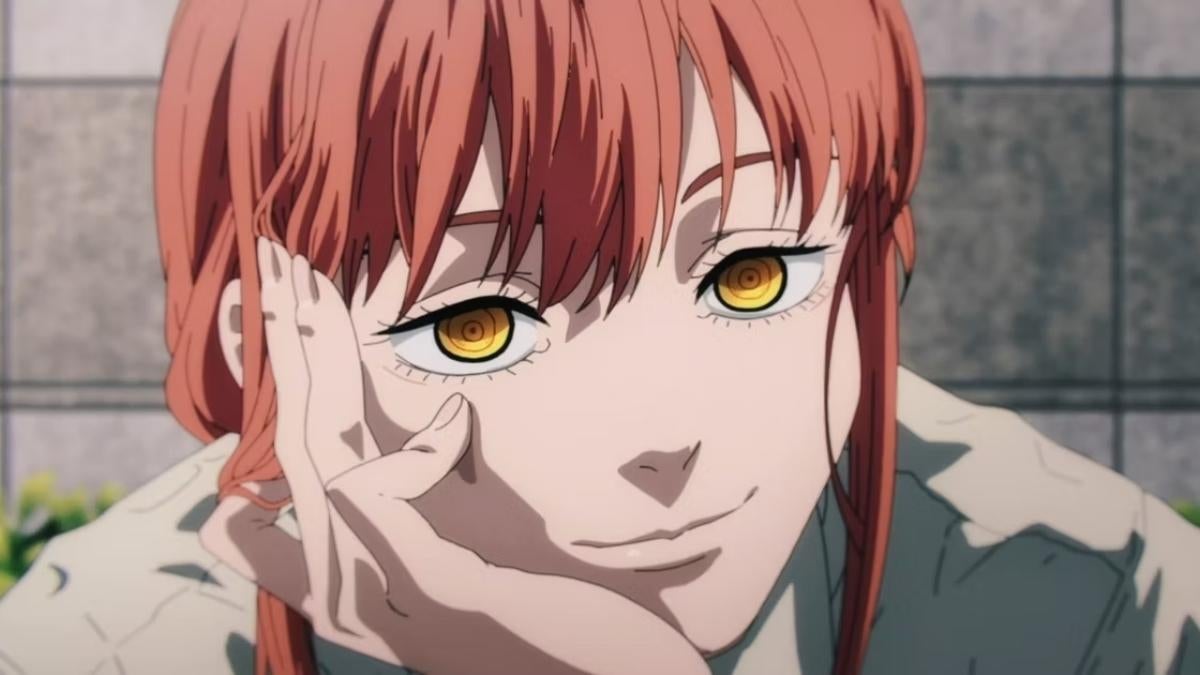Danai Gurira On TWD: The Ones Who Live Finale, Season 2, Writing, and More (Exclusive)
Michonne star Danai Gurira sheds some light on wrapping up The Ones Who Live.
The Walking Dead: The Ones Who Live wrapped up its first (and possibly only) season on Sunday night with a satisfying finale, with Danai Gurira joining ComicBook.com for an exclusive interview to break down the journey. With only six episodes, The Ones Who Live got audiences up to speed on where Rick Grimes and Gurira's Michonne have been since departing The Walking Dead, with both cast members serving as executive producers. In fact, Gurira also wrote an episode, putting her pen to paper for the show's excellent fourth episode. Spoilers for the show's sixth episode follow!
"I feel great about how this has gone. I'm so thankful for how the audiences and the fans have responded," Gurira said of The Ones Who Live. "I feel like it feels really special how people have taken the story and seem to have really have had a good time with it. So, there is a lot of thankfulness about that, and that's where we are right now."
With Rick having left The Walking Dead in its ninth season and Michonne following suit in the show's tenth season, it has been years since fans have seen the beloved cast members and their characters. Six episodes later, those clamoring for more time with them got it and the story has ended at a point where – if there is no season two – everyone gets the closest thing to living happily ever after that The Walking Dead universe seems willing to provide.
"Allowing these characters to get to a place where it's good for more than them, that's what makes it epic," Gurira said. It's not just about them, it's about what they can do for others. And the fact that as a duo, there's something extremely powerful there that's very singular."
The full interview with Gurira can be found below. More coverage from The Ones Who Live, including a breakdown, reviews, new show updates, and more can always be found right here on ComicBook.com!
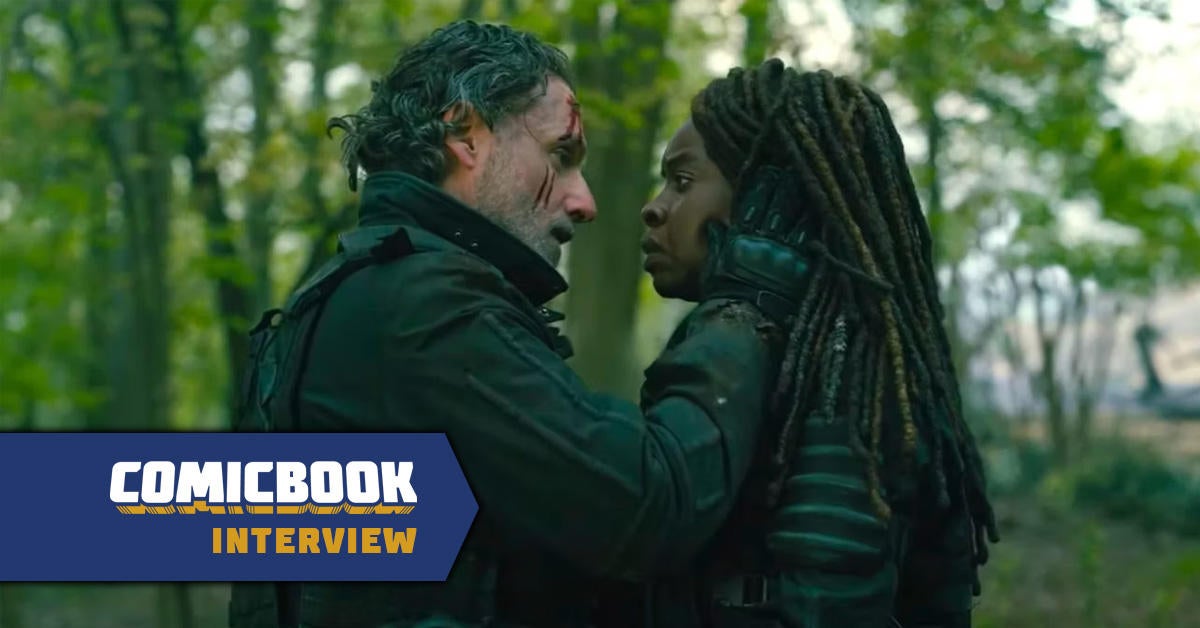
ComicBook: Before getting to the end, I'd love to go back and talk about episode four with you, which you wrote, and I know that we were talking how that brought you so much joy. I thought it was so incredibly well done and some of the sequences and the dialogue felt like I was watching a play. I'd love to hear, if at all, how did your background in theater influence your work in writing for The Walking Dead?
Danai Gurira: It directly influenced it. I wanted that episode when we were mapping out the series, me, Andy, and Gimple, and we said, "Yeah, this will be the two-hander where it's just them and we just get to the bottom of it all and they come out, they go into the cocoon and come out butterflies..." I was like, "Yeah, that's my episode, that's the episode I'll right." As a playwright, I love that type of dynamic where you're keeping the ball in the air between two characters only and you have to find a through line of action and who wins and who loses, scene to scene, moment to moment. And that's sort of a journey of characters. And also specifically, honestly, I was like, "I don't trust anyone else writing this!" Because I wanted to see them say certain things and get certain things out, and I wanted them.
It was the desire of mine to make sure that the things that needed to be said that I felt needed to be said. But then also at the end of it, I wanted to make sure that we could really keep the love story really rich in the fact that; why is he acting like this? Why is he blocked? Why is he unable to do what everyone expects him to do? And getting into the innards of that type of emotional trauma really, and the emotional wound that of course, why would Rick Grimes know how to just easily articulate that as would most people not? So, that journey of really finding the thing that's causing the conflict, but finding it through him having to open up. I think him having that panic attack and then the journey that Michonne has to take him on at that other scene, that was something I also really wanted to very carefully thread the needle with. And I think definitely that's a theater play. When I say play, I don't mean play, play. I mean when you make a play, it was like, that was me making a play definitely as a writer of theater, because that type of threading is what you have to do in theater a lot.
CB: You did such a brilliant job and your performances were fantastic and that really is a pivotal moment in this show. After that we have essentially the wedding in a sense, and I'd love to hear about that. Was that always part of the plan for the show? What did it feel like for you guys to take these characters to this next level of their journey together?
DG: It wasn't, we discovered that proposal thing along the way. We discovered it really while we were in the midst of shooting the previous episodes, and we had a break in between. There was a discovery of what is the journey of Rick and Michonne in Episode 5 and then we sort of discovered that it was very collaborative. I was definitely very involved. Andy was very involved and we worked a bit with the writers, Channing [Powell] a lot on it, but that was a collaborative find to be like, this is the journey in this episode, post-four. What happens post four between them? Post-four is him now throwing himself at her, you know what I mean? In a sense of making up for that wound that he was acting out of and how much that put her through. And of course, wanting to connect, wanting to really seal their love in a way that he hasn't had a chance to before.
CB: You mention the collaborative effort that went into the show, there's the moment with the metal cat, and that to me instantly was like, "Oh, I was in Michonne and Carl!" That's that bonding moment from years back. I loved where did that come from and did I read that the right way?
DG: Yeah, it does take us back to the Carl relationship, but it also takes us back to Jadis, also initially when they put Rick through hell with their gladiator zombie and all that, and Rick came out there and Michonne and him embrace, and then he is been speared right through his hand and all this mess they put him through. And then he takes one of her cats. She liked to make cat sculptures and he knows that Michonne likes cat sculptures because she lost the one that she'd found that time with Carl. So, he replaces it with one of hers, and I think she complains about it in a later episode that he took her cat.
So, it is this ongoing thing between Jadis and Rick and Michonne about her and her cats, and also bringing in the Carl remembrance. That's how we know Michonne loves them. So, the fact that that's where it is, yeah, there's definitely some poetic aspect to that, but the fact that that's where she stored, she stashed that document was definitely that. I think that was mainly Gimple. I would give that to Gimple.
CB: Ultimately, it was such a beautiful moment to have the whole family come back together, Judith and RJ together. Was that the last thing you all filmed for this series, or what was the last thing you guys shot for The Ones Who Live?
DG: I don't think it was the last thing. I think the last thing we shot was we were on top of the tank after we got away from all the walkers and it was just we were standing on top of those containers
CB: I love how that took us right back to the season one, the pilot ending, in the tank.
DG: Exactly. Exactly, exactly. So that was the last thing we shot together, So many people there and we got to speak to them and give them love. And so it was kind of a great way to end.
CB: Well, I would love to hear about that. What was it like to, because this was largely a new crew with some familiar faces in New Jersey outside of Atlanta. What did you guys say? What did you guys do to celebrate wrapping it up?
DG: Oh, I can't remember. I think I might have a little BTS that I might post of Andy talking. I don't think it gets me, but I think someone was recording Andy talking that I caught it. So, I'll definitely post it, but as long as he lets me. It was definitely a very powerful moment to see everybody's, so many people have done so much work.
So, Andy's very good... Sometimes I think is Andy African because he's so good with the speech making. At the end of a moment, Africans, we be doing that! Every gathering. Usually it was my grandmother. Somebody will get up and give a speech and Andy's just so good at that, it's amazing. So he got up and I said something, but he really stuck the landing about loving on everybody and thank being thankful. And of course the journey he's taken from the pilot, he's able to really speak to, in no way no one can. So he was really talking about that spirit and that energy having been so powerful with this crew and these people and all the work they've done. So it was really beautiful. He's always, he's very good at those. But it's just genuine. It's just very genuine. It's very heartfelt and it's very powerful, all at once. So, it was a very poignant moment.
CB: I was surprised that after episode five, by the end of episode six, it felt like so many of the story elements did wrap up in very satisfying ways before this came to an end. So as an executive producer, now that it's out in the world, what was that experience like to develop that arc in its entirety? And also, was it always the plan to have this all wrap up and one, is there plans for season two?
DG: You know I'm not going to answer that! But, yeah, definitely, I feel great about how this has gone. I'm so thankful for how the audiences and the fans have responded. I feel like it feels really special how people have taken the story and seem to have really have had a good time with it. So there is a lot of thankfulness about that, and that's where we are right now.
CB: The fan reaction has been tremendous. What do you guys think you've done that really has drummed up that positive response from a really big audience?
DG: I mean, we have to take some time once six airs, I think we think about it, but I think from this perspective now, I think it really is about two things we really wanted to do is we wanted to create cliffhangers. We wanted to misdirect you because that's satisfying, you know what I mean? So, the fact that everyone thought he'd, Michonne would only find him later in the series, and then it's the end of the pilot, she's found him... Just things like that. We definitely wanted to keep ahead of the audience and we know our audience. We know TV audiences today are really smart, really sharp. So how do you do that? And we definitely held that responsibility to ourselves very, very seriously, to keep steps ahead of where the audience thinks they're going. And then simultaneously too, we had to really accomplish the premise, which is this is an epic love story, and that means that these are two lovers who are very different from most others, and what does that result in? Is that good for only them?
So, allowing these characters to get to a place where it's good for more than them, that's what makes it epic. It's not just about them, it's about what they can do for others. And the fact that as a duo, there's something extremely powerful there that's very singular. And then also, yes, always a focus is allowing other characters, no matter how long their arc, but to have a satisfying one and Walking Dead has always been very good with that, bringing in characters and allowing them to have powerful arcs. Even as short as Nats' arc was or Beale's arc, it's allowing characters to have a strong arc in and of themselves and still shine in their particular roles and affect people. And so those were definitely the tenants, some of the tenants that were very important to us.
CB: So, speaking of those characters that have a legacy, hypothetically, if this were the last time we ever saw Rick and Michonne and the family is together, what do you think they do from here or want to have happen from here?
DG: Well, I think they are aware that they have to find the balance of home, but also the balance of their responsibility to think larger than themselves. I think even the connection that they've had now with the city that the CRM was working with, that's an alliance, a connection that they have a responsibility to now, quite honestly, because they destroyed the army is. Those are people, those are good people who are doing good things. So I think they have, having seen what bad can be done with power, I think it is their responsibility to figure out the opposite beyond themselves, beyond their family, because that;s who they are.
CB: I was introduced to you when you became Michonne, and I've been following your career, and of course I've seen you jump over to Marvel as well. Your co journey has been awesome, and I know Eyes of Wakanda is on the way, and I'd love to hear if that's a series where you're getting to explore new sides of the Okoye character and just if you know when you'll play Okoye again?
DG: I mean, I can speak to none of this, Brandon, but what I can say is yeah, I think Okoye is, I love Okoye. I think there's something so interesting about her compared to Michonne is that Michonne really has had so much, there's times I really was taking notes from Michonne about being a better woman, whereas Okoye is like, she's a very good woman, but there are things she still has to learn. You know what I mean? There's a way that she has to still figure some stuff out for herself.
CB: What do you think a Michonne, Okoye meeting would look like? Would they get along?
DG: I think they would. Game recognizes game. I think they would get along.
